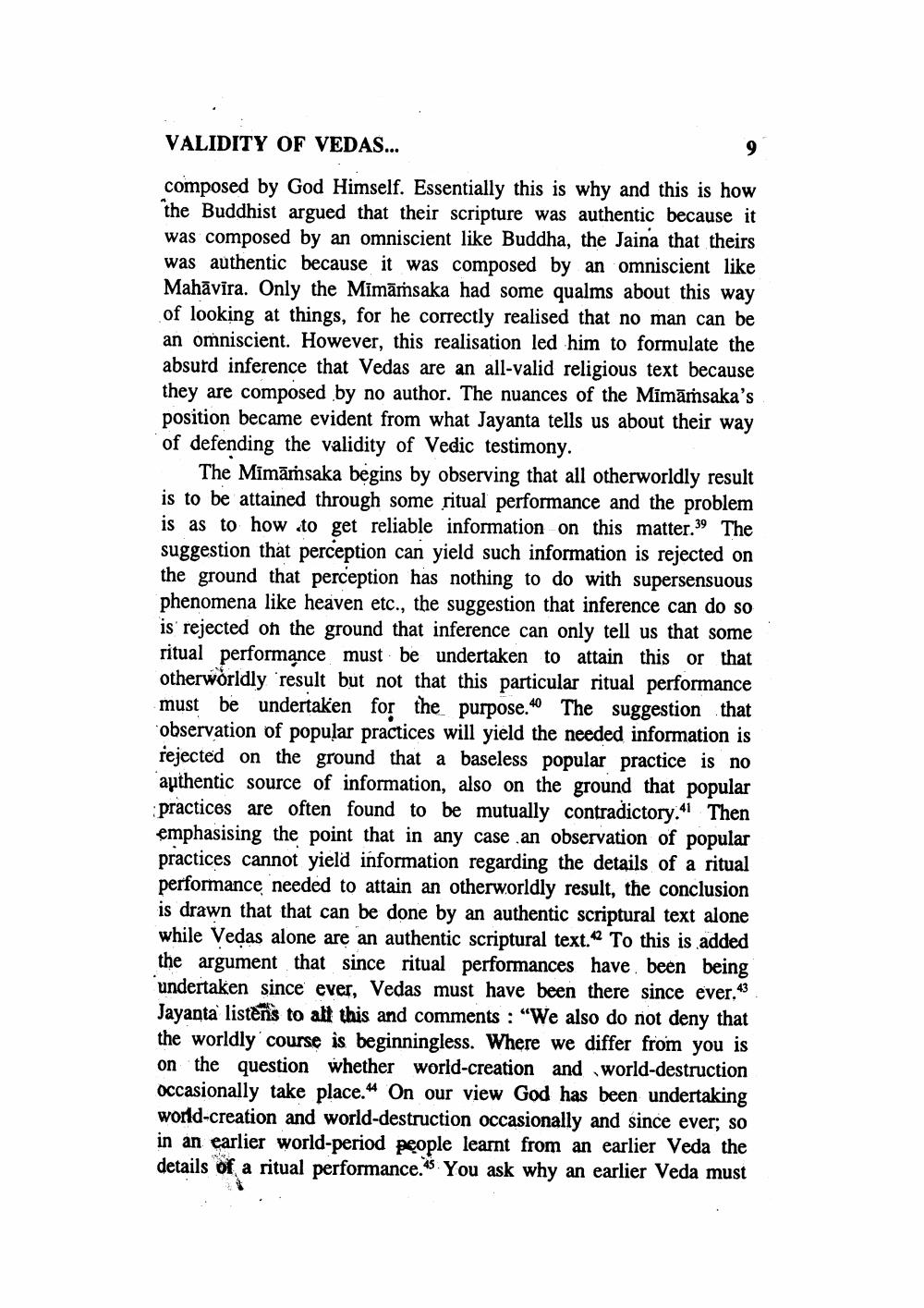________________
VALIDITY OF VEDAS...
composed by God Himself. Essentially this is why and this is how the Buddhist argued that their scripture was authentic because it was composed by an omniscient like Buddha, the Jaina that theirs was authentic because it was composed by an omniscient like Mahāvīra. Only the Mimāṁsaka had some qualms about this way of looking at things, for he correctly realised that no man can be an omniscient. However, this realisation led him to formulate the absurd inference that Vedas are an all-valid religious text because they are composed by no author. The nuances of the Mimāṁsaka's position became evident from what Jayanta tells us about their way of defending the validity of Vedic testimony.
The Mimāṁsaka begins by observing that all otherworldly result is to be attained through some ritual performance and the problem is as to how to get reliable information on this matter.39 The suggestion that perception can yield such information is rejected on the ground that perception has nothing to do with supersensuous phenomena like heaven etc., the suggestion that inference can do so is rejected on the ground that inference can only tell us that some ritual performance must be undertaken to attain this or that otherworldly result but not that this particular ritual performance must be undertaken for the purpose.40 The suggestion that observation of popular practices will yield the needed information is rejected on the ground that a baseless popular practice is no authentic source of information, also on the ground that popular practices are often found to be mutually contradictory." Then emphasising the point that in any case an observation of popular practices cannot yield information regarding the details of a ritual performance needed to attain an otherworldly result, the conclusion is drawn that that can be done by an authentic scriptural text alone while Vedas alone are an authentic scriptural text.? To this is added the argument that since ritual performances have been being undertaken since ever, Vedas must have been there since ever.43 Jayanta listens to all this and comments : “We also do not deny that the worldly course is beginningless. Where we differ from you is on the question whether world-creation and world-destruction occasionally take place. On our view God has been undertaking world-creation and world-destruction occasionally and since ever, so in an earlier world-period people learnt from an earlier Veda the details of a ritual performance. You ask why an earlier Veda must




